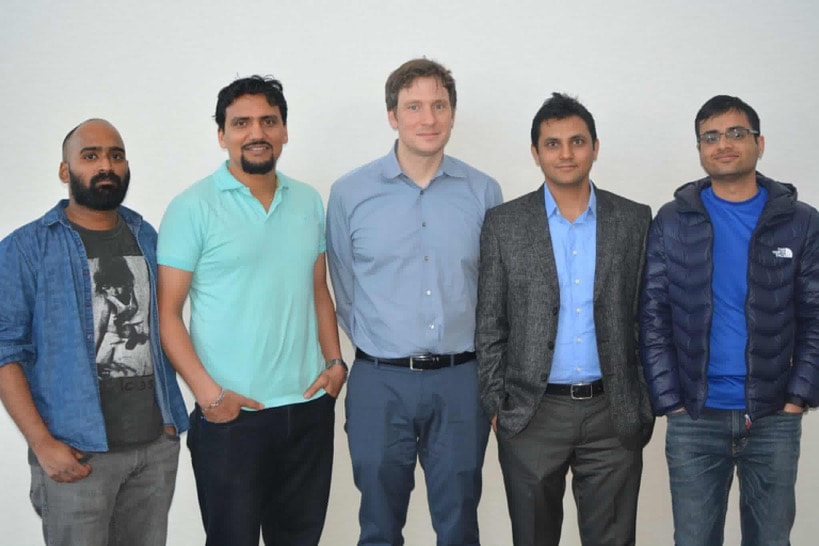Organic Electronics at Kent State
|
Established in 2014, the Lüssem Lab studies new organic semiconductors and novel organic devices with improved performance. Research spans from clarifying the fundamentals of charge transport in organic semiconductors, to modeling light emission in organic micro cavities, and new protocols for a large scale integration of functional organic circuits.
For more information see our projects. |
|
Some recent news about our research:
Congratulation to Raj for a new paper on fluorinated C60 derivates
Thanks to a great collaboration with the Boltalina group we were able to test a new fluorinated C60 derivate in OFETs. The materials become more stable in ambient air, and shows almost equal performance to plain C60. Congratulations to Raj! We will make the raw data available, will post the link here! 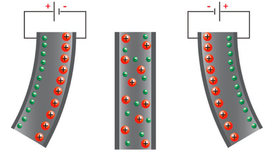
Our first paper in 2020
Our manuscript "Poly (Ethylene Glycol) Diacrylate Based Electro-Active Ionic Elastomer" is now online. Thanks to the Jakli group for including us! 
Our next graduate, Dr. Vikash Kaphle!
Congratulations to Vikash for the successful defense of his thesis "Organic Electrochemical Transistors"! We wish Vikash all the best for his new position at the University of Southern Mississippi. Read the thesis here. 
Congratulations, Dr. Liu!
Great news - Shiyi has successfully defended his thesis "Understanding Doped Organic Field-Effect Transistors" on Nov 1st! Congratulations, that was a great defense! The thesis can be downloaded from Ohio Link. More publications will follow! 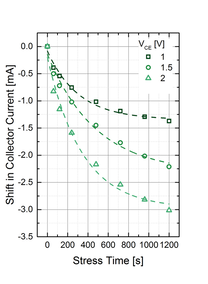
Congratulations to Kashi and Akram for their new paper!
Organic Permeable Base Transistors are really powerful, but they suffer from gate (or base) bias stress effects in a very similar way as conventional organic field-effect transistors. In their new manuscript, Kashi and Akram report on their studies to clarify the origin of this shift. They propose that charge carriers are trapped at the base oxide formed around the gate, which leads to a shift in the transfer characteristic in these devices. Read the full paper here! 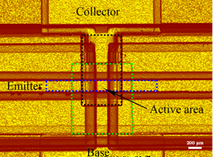
Akram's manuscript accepted for publication!
A big congratulation to Akram - his manuscript on scaling OPBTs was accepted in Advanced Electronic Materials! In his manuscript, he argues that OPBTs are not limited by contact resistances - which might hint to a way to optimize OFETs as well... 
Interview with Jeanne Destro at WAKR
It was fun to be interviewed by Jeanne from WAKR and to showcase our research beyond the scientific community. Enjoy the interview here. 
First Graders of Longcoy Elementary Visit our Lab
First graders of Longcoy Elementary were visiting our lab to learn about the different states of matter. We had lots of fun! 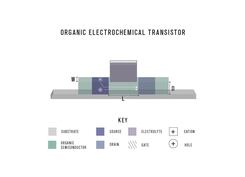
Career Award Awarded to Lussem Group
We recently received funding for 5 years from NSF to continue our work on Organic Electrochemical Transistors. Looking forward to exciting results! 
New Paper published in Scientific Reports
Congratulations to Changmin for his recent paper published in Scientific Reports! Changmin discusses a new techniques to influence the structure of organic thin films and how we can exploit this method in OLED research. 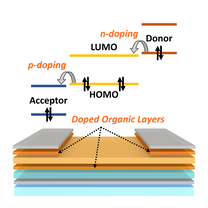
New NSF Proposal awarded to Lussem group
We recently received the award notice from the NSF. The grant will fund our experiments about minority and majority charge dynamics in organic semiconductor. Looking forward to the experiments! 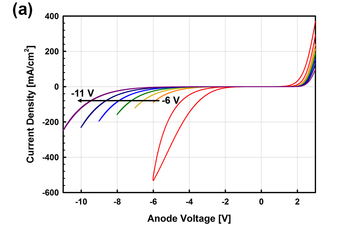
Trapping in Organic Zener Diodes - New Paper of Chang-Min
How can we describe trapping effects in Organic Zener Diodes? Chang-Min developed a straightforward analytical model to describe the shift in breakdown voltage of organic p-i-n Zener diodes due to trapping in the intrinsic layer. The results can be used to study trapping in organic semiconductors in detail and even sheds some light into the influence of trapping on organic doping. The manuscript was accepted in September and is published here. 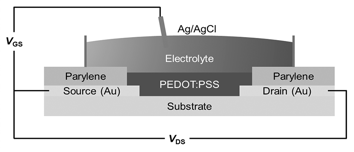
New Paper on Organic Electrochemical Transistors Published
Congratulations to Vikash for his recent paper on contact limitations of organic electrochemical transistors. It provides a glimpse on how we can increase the performance of organic electrochemical transistors even more. The paper was accepted at Advanced Materials and is now online. |
